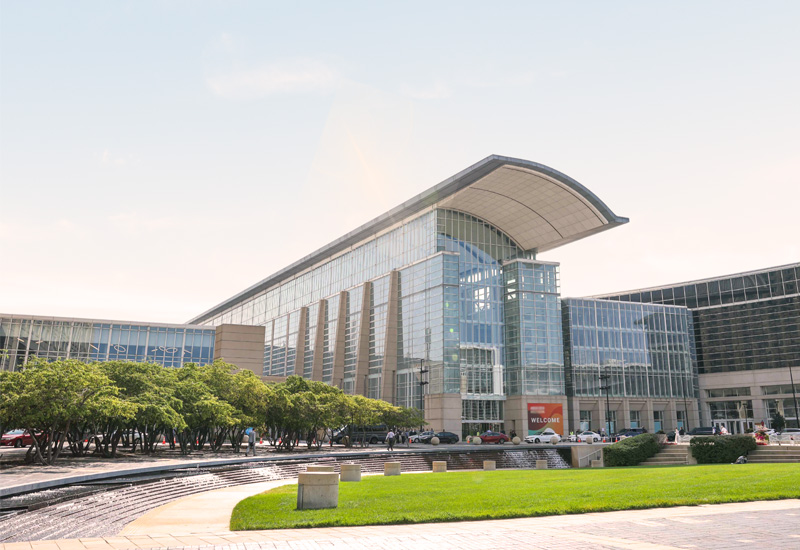The 2025 ASCO Annual Meeting, held under the theme “The Art and Science of Cancer Care: From Comfort to Cure,” saw a new narrative emerge in oncology, one that moves beyond one-size-fits-all treatments toward more personalised, precise approaches tailored to the unique biology of each patient’s cancer.
Advances in AI, biomarker testing, and next-generation diagnostics were central to this shift, enabling smarter patient selection, earlier detection of resistance, and more targeted use of therapies.
Commetric analysed 596 items media coverage from global English-language Tier 1 outlets to uncover the wider narratives emerging from the event, and to spotlight the pharma companies that captured the most attention.
ASCO 2025 in focus: Breakthroughs, trends and talking points
Significant strides in targeted therapies: This year’s ASCO conference spotlighted the rise of targeted therapies, especially antibody-drug conjugates (or ADCs) and kinase inhibitors, that home in on specific features of tumors. Companies including AstraZeneca (Enhertu), Pfizer (Braftovi), Merck (Zilovertamab vedotin), Genmab (Rina-s) and Eli Lilly (LY4170156) shared encouraging results for their treatments, signaling a shift toward more personalised, effective cancer care.
Immunotherapy combinations and expansion: Immunotherapies, such as Merck’s Keytruda, AstraZeneca’s Imfinzi and Roche/Genentech’s Tecentriq, continue to be a cornerstone, with new data supporting their use in combination with other agents (chemotherapy, ADCs, other immunotherapies) and in earlier stages of cancer.
Focus on overcoming resistance: Another key theme was addressing treatment resistance, with novel agents like AstraZeneca’s Camizestrant and Pfizer/Arvinas’ vepdegestrant showing promise in patients whose cancers have developed resistance to standard endocrine therapies.
AI and personalised medicine advancement: The use of liquid biopsies and ctDNA monitoring for early detection of resistance (AstraZeneca’s SERENA-6 trial) and AI for patient selection (AstraZeneca-funded HER2 study) underscores the move towards more personalised and proactive cancer treatment strategies.
Exercise in cancer care: Turning point at ASCO 2025
A study led by Dr Christopher Booth drew major attention at ASCO 2025, showing that regular brisk walking can significantly reduce cancer recurrence and mortality. Patients who exercised had a 28% lower risk of recurrence and a 37% drop in mortality over eight years. ASCO’s Dr Julie Gralow praised the research as long-needed, high-quality evidence for exercise in cancer recovery. Increased activity from APAC pharma/Biotech: Several presentations involved drugs or trials originating from or with significant involvement of Asian companies (e.g., Taiho Oncology, BeiGene, Akeso, HUTCHMED, Innovent Biologics, Remegen, J INTS BIO, Alphamab Oncology), indicating a growing global presence in oncology R&D, a trend also noted by AstraZeneca’s CEO.
AstraZeneca was the most visible pharma company, spotlighting major advances in breast cancer treatments at ASCO 2025. Its oral SERD camizestrant was found to cut disease progression or death by 56% in patients while Enhertu, co-developed with Daiichi Sankyo, showed strong PFS gains in both breast and gastric cancers.
Pfizer showed its BRAFTOVI combo nearly halved death risk and boosted PFS. Vepdegestrant, a targeted therapy developed with Arvinas, worked better than fulvestrant in treating breast cancer with ESR1 mutations.
Merck & Co. highlighted Keytruda’s continued success in combo trials, including with Gilead’s Trodelvy in triple-negative breast cancer and in head and neck cancers. Eli Lilly shared early trial results showing its drug LY4170156 may help treat platinum-resistant ovarian cancer, with larger studies planned.
Johnson & Johnson presented early results for a new prostate cancer drug, pasritamig, showing signs it can shrink tumours with manageable side effects, potentially making it suitable for use outside of hospital settings.
Roche shared encouraging results from several cancer studies. Its breast cancer drug Itovebi helped patients with a specific mutation live longer, cutting the risk of death by over 30%. The company also reported strong survival benefits from its immunotherapy Tecentriq in lung and colon cancers, especially when used in combination with other treatments.
Eli Lilly reported positive Phase 1 results for its ADC LY4170156, as part of its push to develop safer, more effective cancer treatments.
Despite the heavy corporate presence at ASCO 2025, it was not-for-profit and healthcare commentators who emerged as the most widely quoted voices.
Dr Julie Gralow, Chief Medical Officer for ASCO, expressed her enthusiasm for a study highlighting the benefits of exercise for cancer patients, aligning with her long-standing advocacy in this area. The study also drew comment from lead authors Dr Christopher Booth and Professor Kerry Courneya, as well as further positive remarks from Dr. Jeffrey Meyerhardt of Dana-Farber Cancer Institute.
Professor Nick Turner, from The Institute of Cancer Research, shared results from a major trial involving a new breast cancer drug regimen, inavolisib, describing the findings as a “pivotal moment” in breast cancer care.
Meanwhile, Professor Kevin Harrington from The Institute of Cancer Research in London, spoke about the impact of immunotherapy on patients with newly diagnosed, locally advanced head and neck cancer, emphasising that treatment options for this group had remained unchanged for over two decades.
Interested how ASCO develops? Read our ASCO 2024 media insights
What media insights could we deliver for you?
At Commetric, we go further to turn complex media data into strategic clarity—combining the power of AI with deep human expertise to uncover the stories that matter. Whether you’re navigating a reputational risk, planning a high-stakes campaign, or seeking a sharper competitive edge, we can help. Get in touch today and discover how our media intelligence can empower your next business-critical decision.
